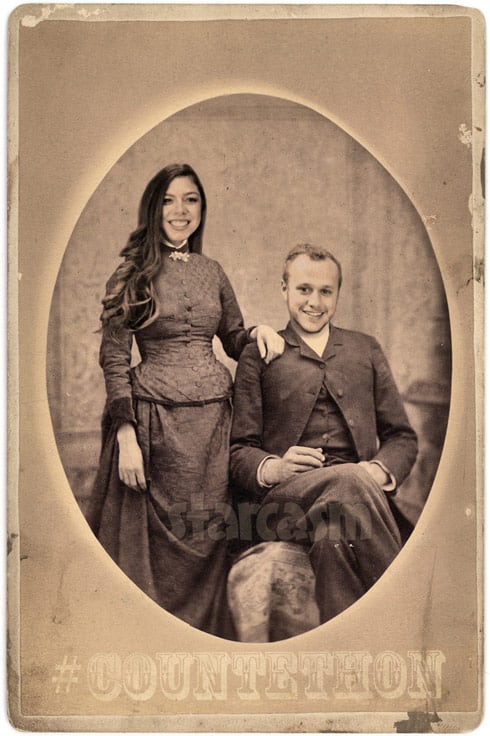Josh Duggar’s molestation documents lawsuit thrown out by judge
TLC reality star Josh Duggar received some bad legal news this week as a federal judge threw out almost every aspect of his lawsuit looking for damages stemming from the release of documents relating to his molestation of his sisters when he was 14 years old.
U.S. District Judge Tim Brooks ruled that Springdale City and Washington County officials were not liable for releasing the information mainly due to the fact that In Touch Weekly had previously identified Josh Duggar as the target of an “underage sex probe” before publishing the documents in question. The ruling is in contrast to the same judge’s ruling in the lawsuit filed by Josh’s sisters (and his victims) Jill Dillard, Jessa Seewald, Jinger Vuolo and Joy Forsyth. The judge denied motions by some of those defendants because the release of the documents in question were responsible for identifying them. The judge explained the difference between the lawsuit filed by Josh and the one filed by his sisters:
A critical difference between the two cases is that while the Dillard Complaint [the lawsuit filed by Josh’s sisters] alleged that the Dillard Plaintiffs’ identities as Joshua Duggar’s victims “were not in the public record before the FOIA disclosures were made,” …the same cannot be said for Joshua Duggar’s role in the alleged offense. The Duggar Complaint acknowledges that In Touch Weekly published a story about Joshua Duggar having been “Named” in a “Underage Sex Probe” before any of the Springdale or Washington County Defendants made any FOIA disclosures to Cross Gunter or the Bauer Defendants.
In addition to granting a dismissal to the County and City officials named by Josh Duggar in his lawsuit, Judge Brooks also granted the motions by In Touch Weekly‘s parent corporations (Bauer Inc., Bauer Publishing Company, Bauer Media Group…) to dismiss both lawsuits filed against them. As I pointed out in a previous post, “In Touch Weekly filed for release of the documents through a FOIA request and the documents were released to them by government officials. To what extent are they liable for knowing that the government officials may not have had the legal right to release them?” The answer, according to Judge Brooks, is not at all:
Here, in the Dillard and Duggar cases, none of the Plaintiffs allege that the Bauer Defendants ever published untruthful information about them. They acknowledge that the Bauer Defendants submitted FOIA requests to the City and the County, and that the Springdale and Washington County Defendants provided the reports of the police investigation pursuant to those FOIA requests. Under the reasoning of Florida Star, the Bauer Defendants were entitled to assume that the information contained therein was a matter of public significance, since it was disclosed by public entities pursuant to a statute that is explicitly designed to effectuate a public policy in favor of disclosing public records. And even if one assumes that the disclosures failed to comply with Arkansas statutory redaction requirements, Florida Star is clear that the Bauer Defendants cannot be held liable for the City’s and County’s failure to follow the law.
There is still one defendant in Josh Duggar’s lawsuit that did not receive a dismissal, and that is the Arkansas Department of Human Services, which has yet to be served, according to Arkansas Online.
The end result of all of this is that Josh Duggar’s lawsuit is all but dead in the water, but his sisters’ continues to move forward with the remaining defendants: former Springdale Police Chief Kathy O’Kelley, Springdale City Attorney Ernest Cate and Major Rick Hoyt of the Washington County sheriff’s office. Judge Brooks denied their motion to dismiss the sisters’ lawsuit against them citing a state statute from the time that the molestation reports were created that seems to back up the sisters’ claims that the officials did not have the right to release the reports (and their identities) under the Freedom of Information Act. From my summary of that ruling:
The most important thing that I took from Honorable Timothy L. Brooks’ ruling is his recognition of an Arkansas State Statute which explicitly stated at the time of the FOIA disclosures to In Touch Weekly that “Any data, records, reports, or documents that are created, collected, or compiled by or on behalf of the Department of Human Services, the Department of Arkansas State Police, or other entity authorized under this chapter to perform investigations or provide services to children, individuals, or families shall not be subject to disclosure under the (Freedom of Information Act).” Judge Brooks determines that the individuals and the civic entities named in the suit were expected to be aware of the statute at the time the documents were released, which sure seems to bode well for the Duggar sisters!
The three remaining defendants have appealed Judge Brooks’ decision to the 8th U.S. Circuit Court of Appeals, and the case will not move forward until there is a ruling on that appeal.
You can read the full ruling from Judge Brooks here.
It is still unclear if TLC plans to included the sisters’ lawsuit on Counting On, or whether they will try to avoid any connection to the Josh Duggar molestation scandal and just stick to courtships, marriages, and births as usual.







